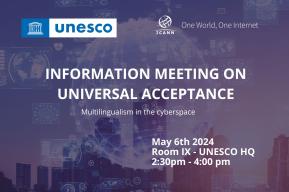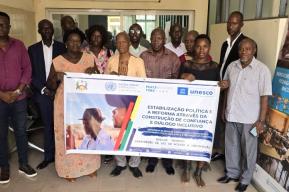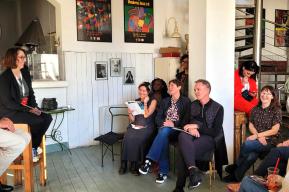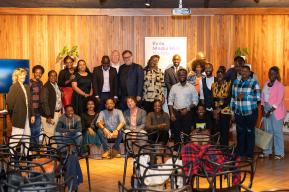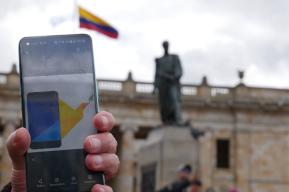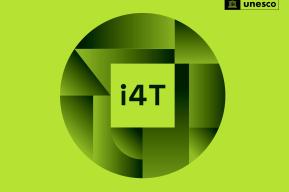Article
Engaging with judicial training institutes to strengthen cooperation on freedom of expression issues
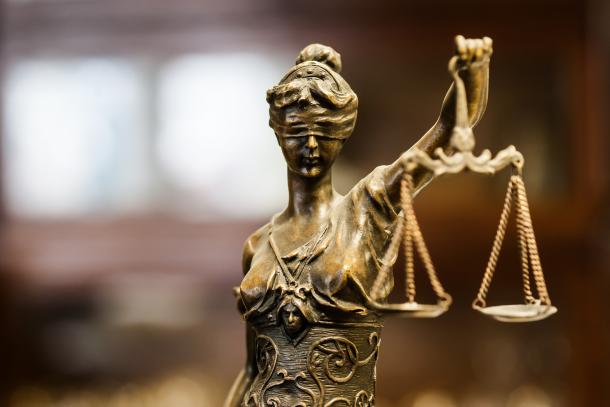
It was the first time that UNESCO participated in the IOJT conference, organized annually to provide opportunities for judges and judicial educators to discuss strategies for establishing and developing training centers, designing effective curricula, developing faculty capacity, and improving teaching methodology.
The theme of this year was Effective Judicial Education: Understanding Vulnerable Populations. The conference gathered over 300 judges and representatives of judicial training institutes from around 50 countries. It was a combination of panel discussions and roundtables to showcase innovative techniques, topic areas and useful tools for judges.
Honourable Richard Wagner, Chief Justice of Canada, stated in his opening remarks that, according to last year’s World Justice Project’s Rule of Law Index, 74% of countries experienced a decline in the rule of law in 2021.
This year, judges have been subjected to corrosive online disinformation campaigns and political interference. They have been fired en masse, received death threats and some have even been murdered. We must remain vigilant against these threats and take inspiration from each other. Transparency promotes public confidence in the administration of justice. And when judges earn that confidence, we reduce our vulnerability and strengthen judicial independence. Only when the judiciary is fully independent, we can uphold the rule of law, strengthen democracy and ensure that vulnerable populations are treated with fairness and dignity.
The UNESCO workshop represented a platform for the participants from all regions around the world to take stock of the good practices and challenges, and to exchange on practical pedagogical tools in promoting freedom of expression and the safety of journalists. At the same time, it offered a unique opportunity to create a network and strengthen synergies among peers and experts on these issues, given potential cooperation in the future.
The workshop’s panelists included Professor Sabin Ouellet, President of the International Association of Francophone Prosecutors, Judge Chile Eboe-Osuji, Former President of the International Court of Justice and currently a member of the High-Level Panel of Legal Experts on Media Freedom, and Judge Elisa Joao Samuel, Director General of the Legal and Judicial Training Center of Mozambique.
The role of the judiciary and judicial training institutes is crucial in ensuring that international standards on freedom of expression, access to information and safety of journalists are implemented at national level. This is why UNESCO actively works with judicial training institutes to integrate modules on freedom of expression, access to information and the safety of journalists in their curricula.
Through a world-café-methodology group discussion, the participants provided specific recommendations to strengthen the role and capacities of judicial training institutes on freedom of expression, access to information and safety of journalists. Among them, they stressed the importance of introducing specific modules on these issues in the curricula of judicial training institutes. They also encouraged UNESCO to continue supporting the judiciary through on-the-ground training.
The following topics were discussed:
- the challenges encountered when incorporating specific modules on these issues into the curricula of the judicial training institutes.
- practical pedagogical tools and most innovative educational methods.
- how to address emerging challenges such as Artificial Intelligence and digital platforms; ways to improve cooperation among judicial actors to promote freedom of expression at national, regional and international levels.
The event is part of the larger Judges’ Initiative of UNESCO. Since 2013, this initiative has increased the capacity of judicial actors in over 150 countries to meet international and regional standards on freedom of expression, access to information and the safety of journalists. Over 24,000 judicial actors, including judges, prosecutors, and lawyers, have received training on these issues, primarily through a series of Massive Open Online Courses (MOOCs), on-the-ground training and workshops for Supreme Court judges, and the publications of a number of toolkits and guidelines.
The event was made possible by the Multi-Donor Programme on Freedom of Expression and Safety of Journalists (MDP) and the Open Society Foundations.


